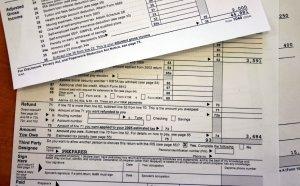
Once you hire your first employee, payroll tax reporting must be a high priority. This will be one of the most scrutinized activities of your business. Proper reporting and record keeping is not difficult as long as you are diligent.
Payroll Tax Reporting Basics
If you pay wages subject to tax withholding, you must file Form 941, Employer's Quarterly Federal Tax Return quarterly. Employers who do not need to file include:
- Seasonal employers
- Household employers
- Agricultural employers
Every year you must also file Form 940, Employer's Annual Federal Unemployment (FUTA) Tax Return, along with your normal income taxes. You must withhold the proper taxes from your employees' paychecks, deposit taxes into a federal tax deposit (FTD) account, and keep accurate and complete records of these activities in case of an audit. You will also need a Federal Tax ID Number to file your returns.
Forms Required
Payroll tax reporting requires one or more of the following forms:
- Form W-4, Employee's Withholding Allowance Certificate: New employees fill this out to show their filing status and withholding.
- Form W-5, Earned Income Credit Advance Payment Certificate: Low income employees complete this to allow advance payment of EIC.
- Form W-2, Wage and Tax Statement: This is the report of income and withholding your business gives the employeesevery year.
- Form W-3, Transmittal of Wage and Tax Statements
- Form W-5, Earned Income Credit Advance Payment Certificate
- Form 1096, Annual Summary and Transmittal of U.S. Information Returns
- Form 1099-MISC, Miscellaneous Income: This is the income and withholding report you give to your non-employee payees such as contractors.
- Form 940, Employer's Annual Federal Unemployment (FUTA) Tax Return
- Form 941, Employer's Quarterly Federal Tax Return
- Form 945, Annual return of Withheld Federal Income Tax
- Form 8027, Employer's Annual Information Return of Tip Income and Allocated Tips
You must also maintain a federal tax deposit (FTD) account. You can set up such an account online using EFTPS.
Important Filing Dates
If a filing date falls on a Saturday, Sunday, or federal holiday then the deadline is extended to the next business day. State holidays give this extension only if the IRS office where you file is located in that state.
- January 31
-
- Furnish each payee with a completed report of their wages for the previous year. Employees receive Form W-2 and non-employed payees such as contractors receive Form 1099-MISC.
- File Form 940 or 940-EZ. If you have deposited all FUTA tax before January 31, then you have an additional 10 days to file.
- File Form 945 if you need to report non-payroll income tax for the preceding year.
- Febuary 15
-
- Request a new Form W-4 from employees, requesting exemption from income tax withholding.
- February 16
-
- Forms W-4 from the previous year expire. If you have not received a new Form W-4 from an employee who previously requested exemption from withholding, begin withholding income taxes as normal.
- February 28
-
- File Forms 1099, 1096, W-2, W-3, and 8027 as required. For electronically filed returns, the deadline is extended to March 31.
- March 31
-
- File electronic Forms 1099, W-2 and 8027 if they were not filed non-electronically.
- April 30, July 31, October 31, January 31
-
- Deposit FUTA taxes each quarter if tax due is more than $500.
- File Form 941 each quarter. If all taxes due are deposited by the due date then you have an additional 10 days to file.
- Before December 1
-
- If an employee's withholding allowances have changed or will change for next year, request a new Form W-4.
- December 31
- Form W-5 expires. An employee who wishes to continue receiving advance EIC payments must file a new Form W-5.
Using A Payroll Service
Payroll tax reporting is a complex subject and, if not done correctly, opens your business to a host of penalties. If it seems overwhelming, consider hiring a third-party payroll service. This does not absolve your business of responsibility if an error is made, but it puts payroll activities in the hands of someone who knows the pitfalls.When evaluating a payroll service, make sure the service has a fiduciary bond to protect your business in case of default. Look for a service that uses EFTPS so that you can go online and confirm that payments are made on your behalf.
State Taxes
In addition to federal payroll taxes, each state has its own set of reporting requirements, including report for state withholding and unemployment taxes. Consult with the state tax agency regarding these payroll tax reporting requirements.
Conclusion
It cannot be stressed enough that payroll tax reporting is one of the most critical record keeping issues your business faces. Learn the proper procedure and stay on top of it over the course of the year.
For more information see Publication 15, Employer's Tax Guide.







